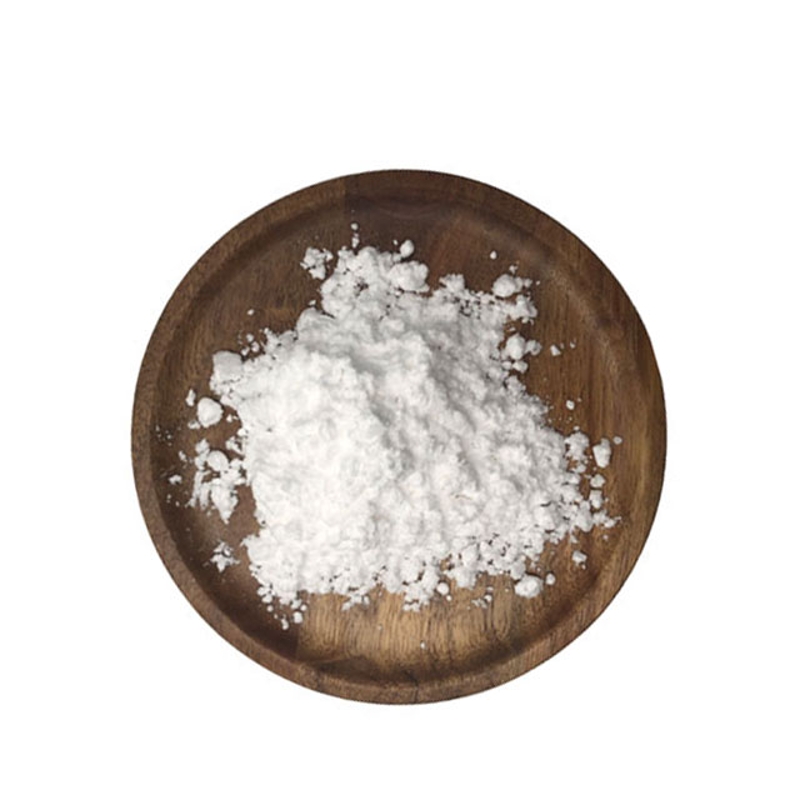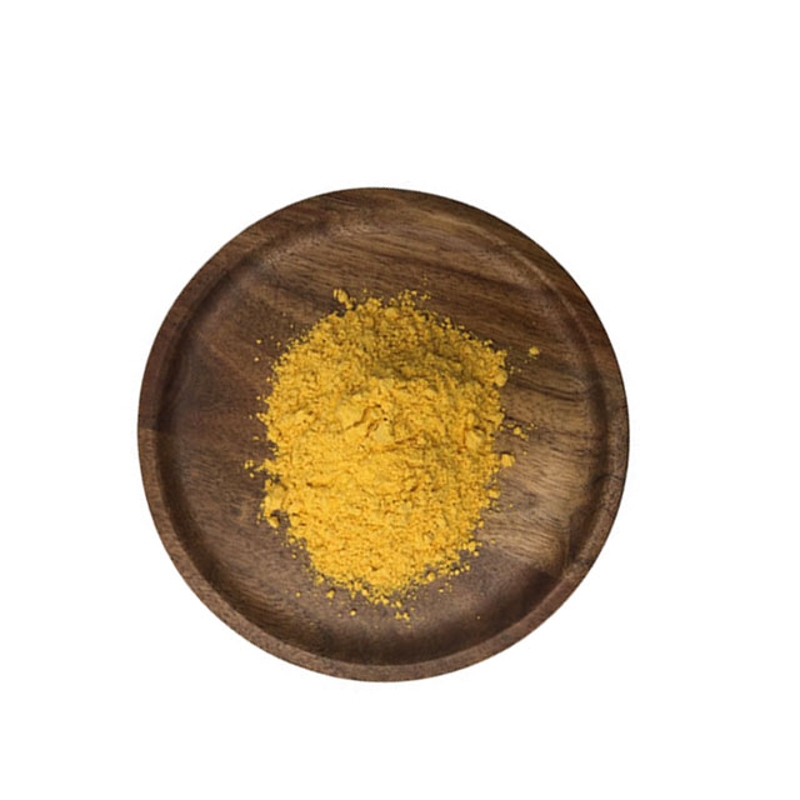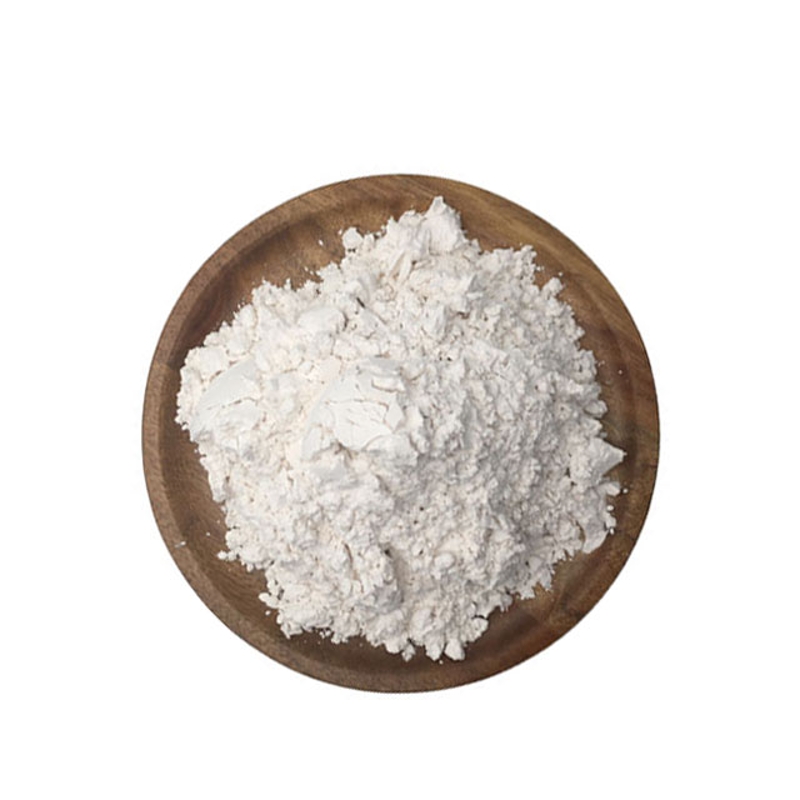-
Categories
-
Pharmaceutical Intermediates
-
Active Pharmaceutical Ingredients
-
Food Additives
- Industrial Coatings
- Agrochemicals
- Dyes and Pigments
- Surfactant
- Flavors and Fragrances
- Chemical Reagents
- Catalyst and Auxiliary
- Natural Products
- Inorganic Chemistry
-
Organic Chemistry
-
Biochemical Engineering
- Analytical Chemistry
- Cosmetic Ingredient
-
Pharmaceutical Intermediates
Promotion
ECHEMI Mall
Wholesale
Weekly Price
Exhibition
News
-
Trade Service
The 2021 Chinese Society of Clinical Oncology (CSCO) Guidelines will be held in Beijing from April 23-24 through a combination of "offline + cloud".
In the melanoma and sarcoma special session on the afternoon of April 23, Professor Chen Jing from Union Hospital of Tongji Medical College of Huazhong University of Science and Technology interpreted the updated key points of the drug treatment section of the "CSCO Soft Tissue Sarcoma Diagnosis and Treatment Guidelines".
Expert Profile Professor Chen Jing Chief Physician Professor Doctoral Supervisor CSCO Council Member of the Union Hospital of Tongji Medical College, Huazhong University of Science and Technology Member of the Chinese Anti-Cancer Association Sarcoma Professional Committee Member of the Standing Committee of the Chinese Anti-Cancer Association Bone Tumor and Bone Metastasis Professional Committee Member of the Standing Committee of the Chinese Anti-Cancer Association Multi-primary and Unidentified Primary Tumor Committee Standing Committee of the Three Subtypes of Soft Tissue Sarcoma Chemotherapy The perioperative chemotherapy regimen for rhabdomyosarcoma is updated.
Rhabdomyosarcoma is divided into pleomorphic rhabdomyosarcoma and non-pleomorphic rhabdomyosarcoma, and the treatment options of the two are very different.
In the "CSCO Soft Tissue Sarcoma Diagnosis and Treatment Guidelines (2021 Edition)" (hereinafter referred to as "Guide 2021"), the designation of non-pleomorphic rhabdomyosarcoma is clearer, including embryonic rhabdomyosarcoma, acinar rhabdomyosarcoma, and spindle cell/ Sclerosing rhabdomyosarcoma.
In the "Guide 2021", the CSCO sarcoma expert group newly recommended some perioperative chemotherapy regimens, mainly including preoperative and postoperative regimens.
Rhabdomyosarcoma is divided into low-risk, medium-risk and high-risk according to the risk.
Researchers need to choose different chemotherapy regimens according to the risk of rhabdomyosarcoma.
In the "Guide 2021", the low-risk group of new growth of crristine + dactinomycin (VA) program, the middle-risk group of new growth of crristine + doxorubicin + cyclophosphamide (VDC)/ifosfamide + Etoposide (IE) regimen.
In addition, because rhabdomyosarcoma is mostly reported in adolescent studies, the CSCO sarcoma expert group added a central invasion group in the "Guide 2021" and recommended a three-drug combination chemotherapy regimen.
Figure 1.
The increased perioperative chemotherapy recommended program "CSCO Soft Tissue Sarcoma Diagnosis and Treatment Guidelines (2019 Edition)" (hereinafter referred to as "Guidelines 2019") includes the "pathological subtypes, TNM staging and IRS groupings as risk grading factors" Rhabdomyosarcoma Risk Scale.
This time, the "Guide 2021" added the age of patients and the FOXO1 fusion gene as risk grading factors.
This is due to the popularization of genetic testing and the prognosis of alveolar rhabdomyosarcoma with negative FOXO1 fusion gene.
Figure 2.
Changes in the risk scale of rhabdomyosarcoma showed that 70%-80% of alveolar rhabdomyosarcoma has the FOXO1 gene on chromosome 13 translocation with the PAX7 on chromosome 2 or the PAX3 gene on chromosome 1 to form the fusion gene PAX3- FKHR or PAX7-FKHR can specifically regulate the expression of myogenic factors; another 20% of patients with acinar rhabdomyosarcoma have 13q31 amplification (MDM2/GLI1/SAS/CDK4).
Figure 3.
The effect of FOXO1 fusion gene on prognosis.
Figures 3A and B show that when the FOXO1 fusion gene of acinar rhabdomyosarcoma is negative (blue line), its overall survival (OS) and event-free survival (EFS) are Embryonic rhabdomyosarcoma with the best prognosis is similar; when its FOXO1 fusion gene is positive (yellow line), its prognosis is poor.
Figure 3C shows that the proportion of patients with acinar rhabdomyosarcoma who are negative for the FOXO1 fusion gene is similar to that of patients with embryonic rhabdomyosarcoma.
Based on the above research, "Guide 2021" added FOXO1 fusion gene as a risk factor.
The univariate analysis affecting 5-year EFS and OS of rhabdomyosarcoma showed that tumor size (with a limit of 5 cm) and age (with a limit of 10 years) were the main prognostic factors.
Therefore, the "Guide 2021" added age as a risk grading factor.
In the "Guideline 2021", the second-line recommendation for patients with unresectable metastasis or relapse has the following 3 adjustments: (1) The cyclophosphamide (CTX) + vincristine (VCR) recommendation in the "Guideline 2019" is deleted; (2) ) Added doxorubicin (ADM) + ifosfamide (IFO) program; (3) added carboplatin + etoposide (VP-16) program.
In addition, the "Guide 2021" adds a description of recommendations for the treatment of adult rhabdomyosarcoma and an introduction to spindle cell/sclerosing rhabdomyosarcoma.
Ewing's sarcoma chemotherapy regimen update based on pathological type The main update of Ewing's sarcoma in "Guide 2021" is related to the pathological type.
In 2020, the World Health Organization (WHO) updated the classification of bone and soft tissue tumors.
Undifferentiated small round cell sarcoma of bone and soft tissue includes Ewing's sarcoma, round cell sarcoma with EWSR1-non-ETS fusion, CIC rearranged sarcoma, and Sarcoma with genetic alteration of BCOR.
Due to the update of pathological types, the "Guide 2021" clarifies the 4 types of undifferentiated small round cell sarcoma, and according to the results of the INT-0091 study, vincristine + doxorubicin + cyclophosphamide (VCD) is added as a metastasis The patient's preoperative chemotherapy regimen.
In addition, the "Guide 2021" also adds a brief introduction to three rare undifferentiated small round cell sarcomas.
Figure 4.
Results of INT-0091 study of non-idiotypic soft tissue sarcoma chemotherapy update In the "Guideline 2019", only doxorubicin (A) and doxorubicin + ifosfamide (AI) two chemotherapy regimens received CSCO Recommended by the Sarcoma Expert Group.
In the "Guide 2021", the CSCO sarcoma expert group made two adjustments to the chemotherapy regimen: (1) OS based on the dual-drug combination is better than single-agent, and the ranking of the AI regimen is adjusted to before the A plan; (2) One An Italian study showed that postoperative epirubicin + ifosfamide (EI) regimen can improve disease-free survival (DFS) and OS.
Based on this research and the lack of doxorubicin, the EI program was added to the Guide 2021.
The update of targeted/immunotherapy is based on a phase 2b randomized, double-blind, placebo-controlled multicenter clinical study of anlotinib in the treatment of advanced soft tissue sarcoma-ALTER0203 study.
Anlotinib won the country in June 2019 The Drug Administration (NMPA) approved for the second-line treatment of soft tissue sarcoma.
Also based on this study, the CSCO Sarcoma Expert Group upgraded the recommendation level and evidence level of Anlotinib to Level I recommendation and Type 1A evidence, respectively.
In the "Guide 2021", for acinar soft tissue sarcoma that is not sensitive to chemotherapy, Anlotinib changed from a level II recommendation to a level I recommendation, and the level of evidence was raised from the original 2B evidence to the 2A evidence.
In addition, in the targeted therapy of special pathological subtypes, the CSCO sarcoma expert group newly recommended Tazemetostat in the "Guide 2021" for the treatment of epithelioid sarcoma.
This recommendation is based on the accelerated approval of Tazemetostat by the U.
S.
Food and Drug Administration (FDA) in January 2020 for the treatment of metastatic/locally advanced epithelioid sarcoma that is not suitable for complete resection.
In terms of immunotherapy, the CSCO sarcoma expert group retained the level III recommendation of pembrolizumab for use in acinar soft tissue sarcoma and undifferentiated pleomorphic sarcoma in the "Guidelines 2021".
Based on the small sample study, the level III recommendation A Teclizumab and pembrolizumab combined with axitinib in the treatment of acinar soft tissue sarcoma.
Conclusion Although the guidelines for soft tissue sarcoma in my country started late, it is believed that with the refinement of pathological staging, the popularization of genetic screening and the deepening of clinical research, the guidelines for soft tissue sarcoma will continue to be improved so that patients can receive more precise and personalized treatment and Clinical benefits.
In the melanoma and sarcoma special session on the afternoon of April 23, Professor Chen Jing from Union Hospital of Tongji Medical College of Huazhong University of Science and Technology interpreted the updated key points of the drug treatment section of the "CSCO Soft Tissue Sarcoma Diagnosis and Treatment Guidelines".
Expert Profile Professor Chen Jing Chief Physician Professor Doctoral Supervisor CSCO Council Member of the Union Hospital of Tongji Medical College, Huazhong University of Science and Technology Member of the Chinese Anti-Cancer Association Sarcoma Professional Committee Member of the Standing Committee of the Chinese Anti-Cancer Association Bone Tumor and Bone Metastasis Professional Committee Member of the Standing Committee of the Chinese Anti-Cancer Association Multi-primary and Unidentified Primary Tumor Committee Standing Committee of the Three Subtypes of Soft Tissue Sarcoma Chemotherapy The perioperative chemotherapy regimen for rhabdomyosarcoma is updated.
Rhabdomyosarcoma is divided into pleomorphic rhabdomyosarcoma and non-pleomorphic rhabdomyosarcoma, and the treatment options of the two are very different.
In the "CSCO Soft Tissue Sarcoma Diagnosis and Treatment Guidelines (2021 Edition)" (hereinafter referred to as "Guide 2021"), the designation of non-pleomorphic rhabdomyosarcoma is clearer, including embryonic rhabdomyosarcoma, acinar rhabdomyosarcoma, and spindle cell/ Sclerosing rhabdomyosarcoma.
In the "Guide 2021", the CSCO sarcoma expert group newly recommended some perioperative chemotherapy regimens, mainly including preoperative and postoperative regimens.
Rhabdomyosarcoma is divided into low-risk, medium-risk and high-risk according to the risk.
Researchers need to choose different chemotherapy regimens according to the risk of rhabdomyosarcoma.
In the "Guide 2021", the low-risk group of new growth of crristine + dactinomycin (VA) program, the middle-risk group of new growth of crristine + doxorubicin + cyclophosphamide (VDC)/ifosfamide + Etoposide (IE) regimen.
In addition, because rhabdomyosarcoma is mostly reported in adolescent studies, the CSCO sarcoma expert group added a central invasion group in the "Guide 2021" and recommended a three-drug combination chemotherapy regimen.
Figure 1.
The increased perioperative chemotherapy recommended program "CSCO Soft Tissue Sarcoma Diagnosis and Treatment Guidelines (2019 Edition)" (hereinafter referred to as "Guidelines 2019") includes the "pathological subtypes, TNM staging and IRS groupings as risk grading factors" Rhabdomyosarcoma Risk Scale.
This time, the "Guide 2021" added the age of patients and the FOXO1 fusion gene as risk grading factors.
This is due to the popularization of genetic testing and the prognosis of alveolar rhabdomyosarcoma with negative FOXO1 fusion gene.
Figure 2.
Changes in the risk scale of rhabdomyosarcoma showed that 70%-80% of alveolar rhabdomyosarcoma has the FOXO1 gene on chromosome 13 translocation with the PAX7 on chromosome 2 or the PAX3 gene on chromosome 1 to form the fusion gene PAX3- FKHR or PAX7-FKHR can specifically regulate the expression of myogenic factors; another 20% of patients with acinar rhabdomyosarcoma have 13q31 amplification (MDM2/GLI1/SAS/CDK4).
Figure 3.
The effect of FOXO1 fusion gene on prognosis.
Figures 3A and B show that when the FOXO1 fusion gene of acinar rhabdomyosarcoma is negative (blue line), its overall survival (OS) and event-free survival (EFS) are Embryonic rhabdomyosarcoma with the best prognosis is similar; when its FOXO1 fusion gene is positive (yellow line), its prognosis is poor.
Figure 3C shows that the proportion of patients with acinar rhabdomyosarcoma who are negative for the FOXO1 fusion gene is similar to that of patients with embryonic rhabdomyosarcoma.
Based on the above research, "Guide 2021" added FOXO1 fusion gene as a risk factor.
The univariate analysis affecting 5-year EFS and OS of rhabdomyosarcoma showed that tumor size (with a limit of 5 cm) and age (with a limit of 10 years) were the main prognostic factors.
Therefore, the "Guide 2021" added age as a risk grading factor.
In the "Guideline 2021", the second-line recommendation for patients with unresectable metastasis or relapse has the following 3 adjustments: (1) The cyclophosphamide (CTX) + vincristine (VCR) recommendation in the "Guideline 2019" is deleted; (2) ) Added doxorubicin (ADM) + ifosfamide (IFO) program; (3) added carboplatin + etoposide (VP-16) program.
In addition, the "Guide 2021" adds a description of recommendations for the treatment of adult rhabdomyosarcoma and an introduction to spindle cell/sclerosing rhabdomyosarcoma.
Ewing's sarcoma chemotherapy regimen update based on pathological type The main update of Ewing's sarcoma in "Guide 2021" is related to the pathological type.
In 2020, the World Health Organization (WHO) updated the classification of bone and soft tissue tumors.
Undifferentiated small round cell sarcoma of bone and soft tissue includes Ewing's sarcoma, round cell sarcoma with EWSR1-non-ETS fusion, CIC rearranged sarcoma, and Sarcoma with genetic alteration of BCOR.
Due to the update of pathological types, the "Guide 2021" clarifies the 4 types of undifferentiated small round cell sarcoma, and according to the results of the INT-0091 study, vincristine + doxorubicin + cyclophosphamide (VCD) is added as a metastasis The patient's preoperative chemotherapy regimen.
In addition, the "Guide 2021" also adds a brief introduction to three rare undifferentiated small round cell sarcomas.
Figure 4.
Results of INT-0091 study of non-idiotypic soft tissue sarcoma chemotherapy update In the "Guideline 2019", only doxorubicin (A) and doxorubicin + ifosfamide (AI) two chemotherapy regimens received CSCO Recommended by the Sarcoma Expert Group.
In the "Guide 2021", the CSCO sarcoma expert group made two adjustments to the chemotherapy regimen: (1) OS based on the dual-drug combination is better than single-agent, and the ranking of the AI regimen is adjusted to before the A plan; (2) One An Italian study showed that postoperative epirubicin + ifosfamide (EI) regimen can improve disease-free survival (DFS) and OS.
Based on this research and the lack of doxorubicin, the EI program was added to the Guide 2021.
The update of targeted/immunotherapy is based on a phase 2b randomized, double-blind, placebo-controlled multicenter clinical study of anlotinib in the treatment of advanced soft tissue sarcoma-ALTER0203 study.
Anlotinib won the country in June 2019 The Drug Administration (NMPA) approved for the second-line treatment of soft tissue sarcoma.
Also based on this study, the CSCO Sarcoma Expert Group upgraded the recommendation level and evidence level of Anlotinib to Level I recommendation and Type 1A evidence, respectively.
In the "Guide 2021", for acinar soft tissue sarcoma that is not sensitive to chemotherapy, Anlotinib changed from a level II recommendation to a level I recommendation, and the level of evidence was raised from the original 2B evidence to the 2A evidence.
In addition, in the targeted therapy of special pathological subtypes, the CSCO sarcoma expert group newly recommended Tazemetostat in the "Guide 2021" for the treatment of epithelioid sarcoma.
This recommendation is based on the accelerated approval of Tazemetostat by the U.
S.
Food and Drug Administration (FDA) in January 2020 for the treatment of metastatic/locally advanced epithelioid sarcoma that is not suitable for complete resection.
In terms of immunotherapy, the CSCO sarcoma expert group retained the level III recommendation of pembrolizumab for use in acinar soft tissue sarcoma and undifferentiated pleomorphic sarcoma in the "Guidelines 2021".
Based on the small sample study, the level III recommendation A Teclizumab and pembrolizumab combined with axitinib in the treatment of acinar soft tissue sarcoma.
Conclusion Although the guidelines for soft tissue sarcoma in my country started late, it is believed that with the refinement of pathological staging, the popularization of genetic screening and the deepening of clinical research, the guidelines for soft tissue sarcoma will continue to be improved so that patients can receive more precise and personalized treatment and Clinical benefits.







